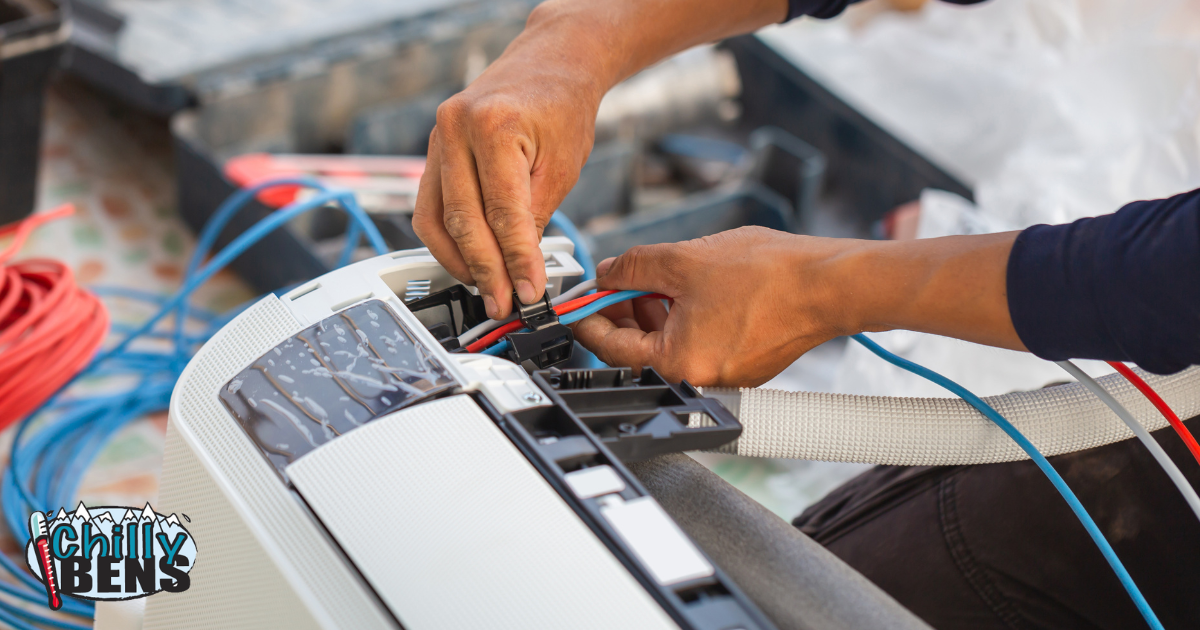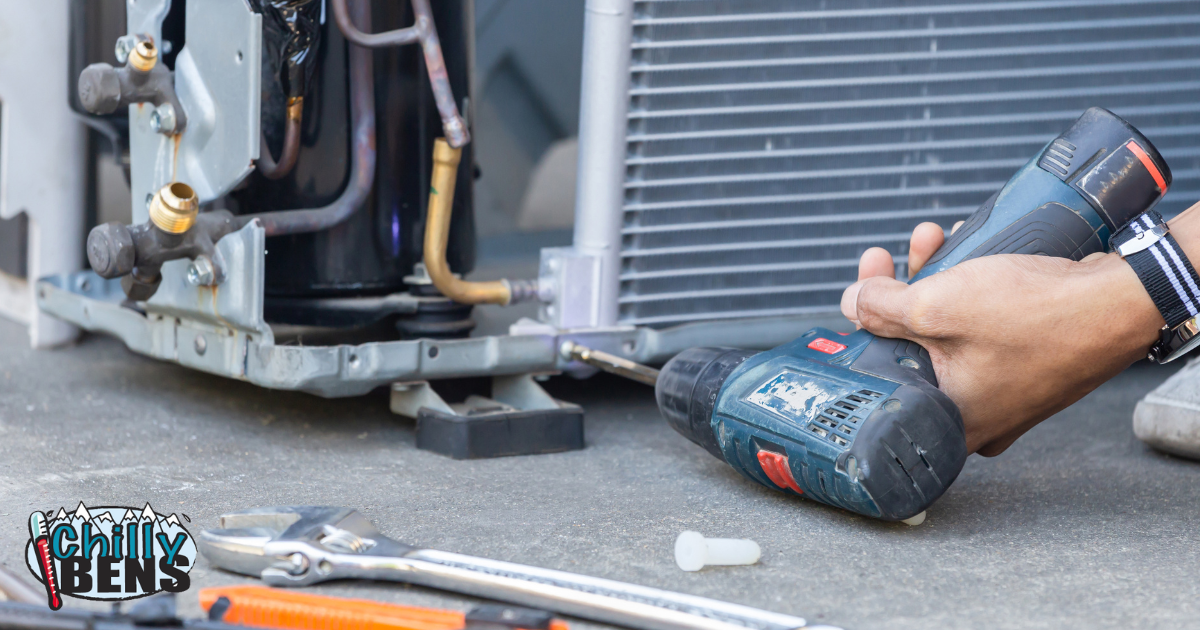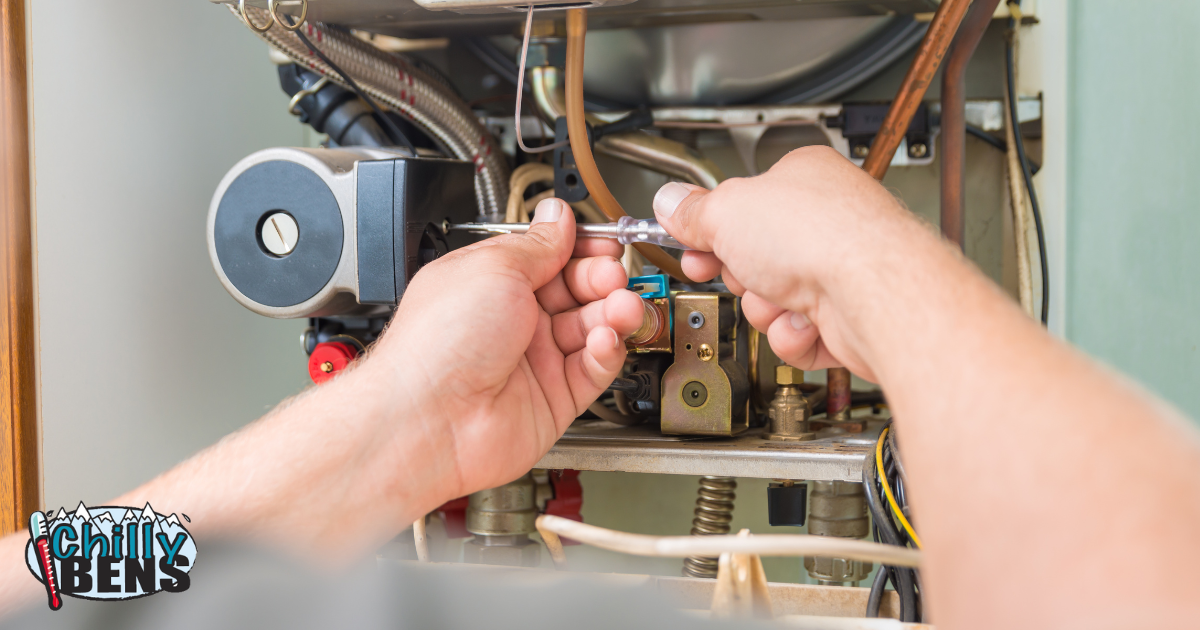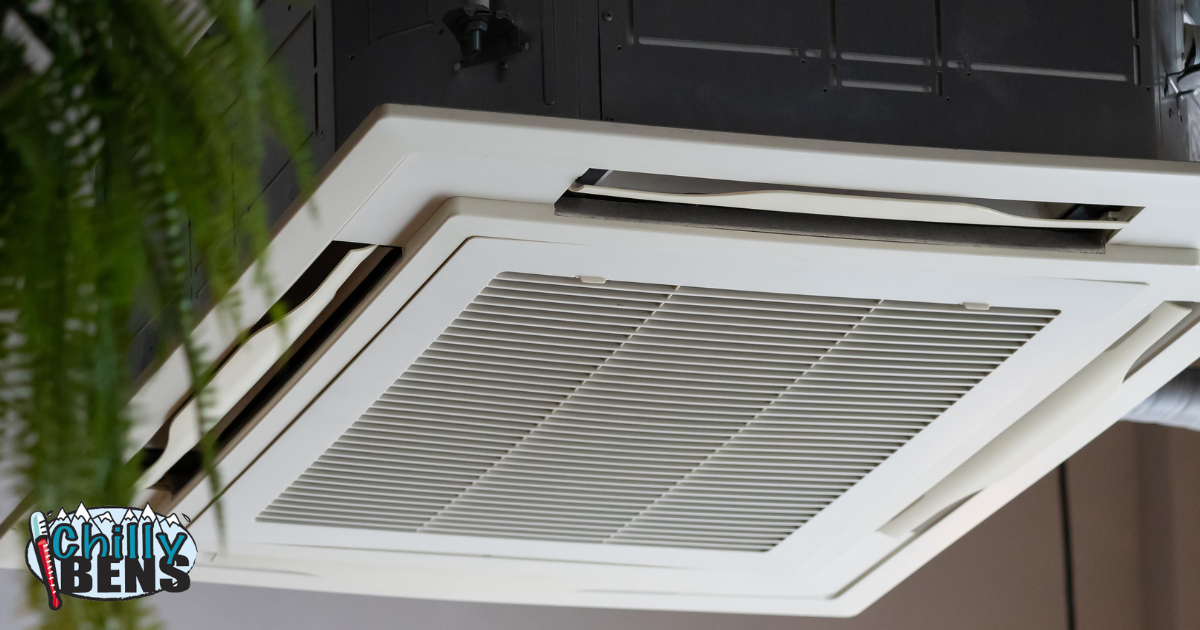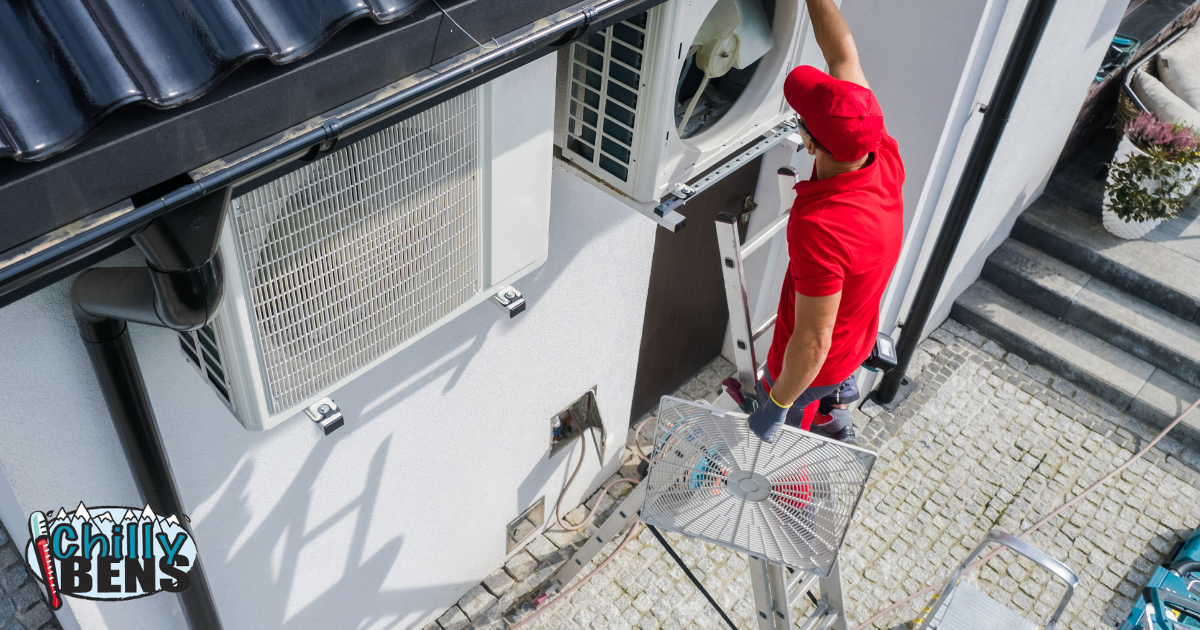Preparing Your HVAC System for Tornado Season
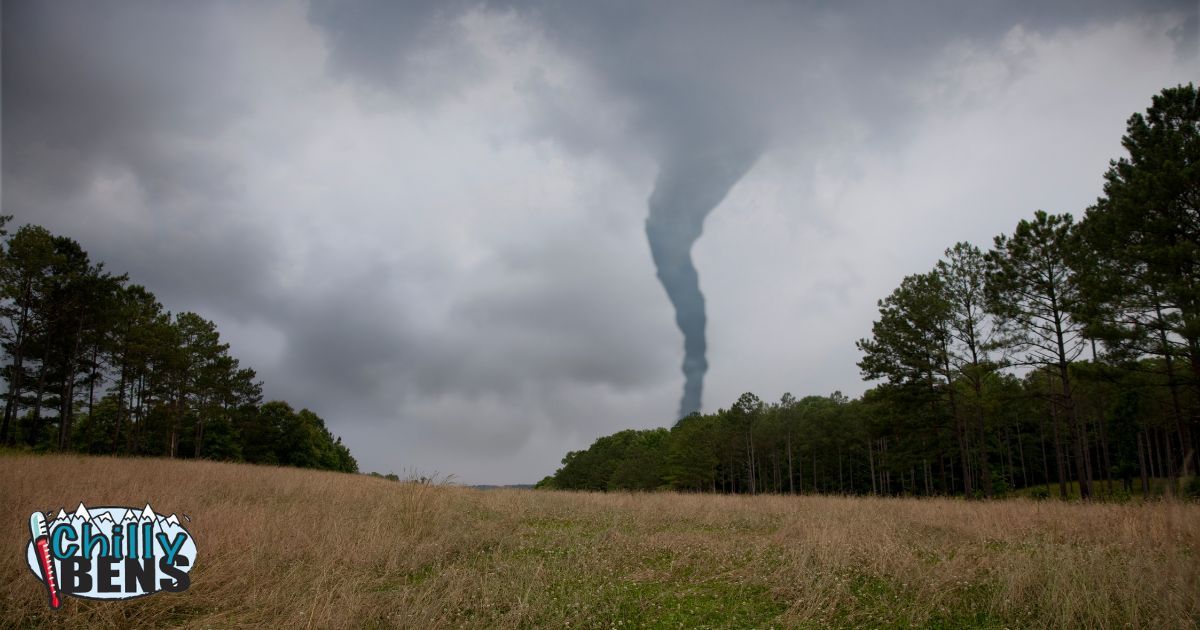
Since the tornado in December 2021, many homeowners have taken action to prepare their homes and themselves in case of another emergency. Thousands of homes were without power and over 500 homes were reported damaged. Within the damage, many outdoor HVAC components required repair and replacement from the flying debris and destruction caused by the strong winds. Your HVAC system is an important and costly component of your home, which is why it should be properly prepared for tornado season in Bowling Green, KY and surrounding areas. In this article, we discuss tips to get your home and HVAC system ready for potential tornadoes in the future.
Preparing Your HVAC For A Tornado
In the unfortunate event of a tornado, Chilly Ben’s wants our community to be safe and prepared. Before ensuring your HVAC system is ready for the winds, the most important step is preparing a safe place for you and other residents within your home. The lowest floor, preferably a basement, is the safest place to be in your home before a tornado. If your home does not have a basement or tornado shelter, we recommend a centered room in your home with no windows. Many homeowners choose to find safety in center hallways, bathrooms, or closets.
Once you have mapped out where you and other residents can find safety from an upcoming tornado, we recommend preparing other aspects of your home. Below are ways to prepare your HVAC system for a tornado in Franklin, KY and surrounding areas.
- Turn Off System
- Secure & Cover HVAC Unit
- Elevate HVAC Unit
- Remove Loose Debris
Turn Off System
Depending on the severity of the storm, we recommend turning off your HVAC system completely. Tornadoes are often accompanied by lightning and thunder, and can cause a power surge throughout your home if struck. This can result in severe damage to your HVAC system and internal components.
Secure & Cover HVAC Unit
According to Bowling Green Daily News, 120 mile wind speeds were estimated in the December 2021 tornado. Strong winds can easily damage, flip, and lift components of your HVAC system, which is why it is important to secure it beforehand. All screws holding the system in place should be tightened and free of rust. Additionally, it is helpful to invest in a cover for your HVAC system for tornadoes and other bad weather storms. A cover can protect from damage and keep out rodents, leaves, and dirt. Many homeowners utilize covers for storms and when the unit is unused in the winter season to protect from ice and snow.
Elevate HVAC Unit
Many outdoor HVAC units are located on the sides of houses, and some where water builds up and creates a constant damp area. If the space around your HVAC unit typically floods, we recommend elevating the unit before a tornado. If rain is accompanied with the tornado, flooding can cause electrical issues along with the wind damage.
Remove Loose Debris
Removing loose debris is not only important to protect your HVAC system, but your home and other’s homes as well! We encourage homeowners to gather large sticks or other debris that can damage outdoor components of your home. Additionally, remove leaves and smaller debris lodged inside your HVAC unit to keep it working efficiently and effectively after the tornado has passed.
HVAC Steps After A Tornado
When it is safe to leave your home, there may be many or few home tasks to complete depending on the severity of damage in your area. It is important for your home comfort to ensure aspects such as electrical and HVAC remained in good condition after the storm. Below are steps to take for your HVAC system after a tornado.
- Check For Damage
- Ensure No Water Damage
- Schedule HVAC Maintenance
Check For Damage
Debris and objects picked up by the strong winds can end up in trees, on roofs, and within your HVAC system. Before turning back on your HVAC, we recommend identifying any damage or lodged debris inside your unit.
Ensure No Water Damage
If you were unable to elevate your HVAC system, check for noticeable water damage to your HVAC system. Flooding can affect electrical components and be a hazard for your safety. Do not turn on your HVAC system after a tornado if you suspect water has flooded or damaged internal components. Give the Chilly Ben’s team a call to inspect the safety of the situation!
Schedule HVAC Maintenance
Once you have confirmed no flooding or damage is harming your system, the next step would be to power it back on. The best way to ensure your HVAC unit suffered no internal damage is to schedule HVAC maintenance in Bowling Green, KY or surrounding areas with a trained Chilly Ben’s technician! We can thoroughly inspect your unit and identify any underlying malfunctions. HVAC maintenance is helpful to avoid future repairs and breakdowns to keep you comfortable throughout each storm and life event!
Tornadoes can cause enough damage as is, and the last thing you want is to replace your HVAC system! Before tornado season begins, we recommend implementing these few steps to prepare your HVAC system for the winds and damage tornadoes can present. To properly prepare your HVAC system, give a Chilly Ben’s technician a call to schedule AC maintenance in Warren County! From December 2021 to now, we are Bowling Green strong and will continue to help our wonderful community one step at a time.

Chilly Bens
For 14 years, Chilly Bens has been providing heating and air conditioning service to the Central Kentucky area.
